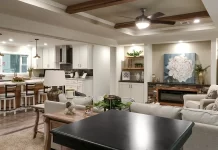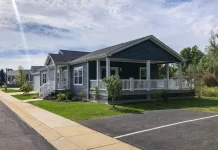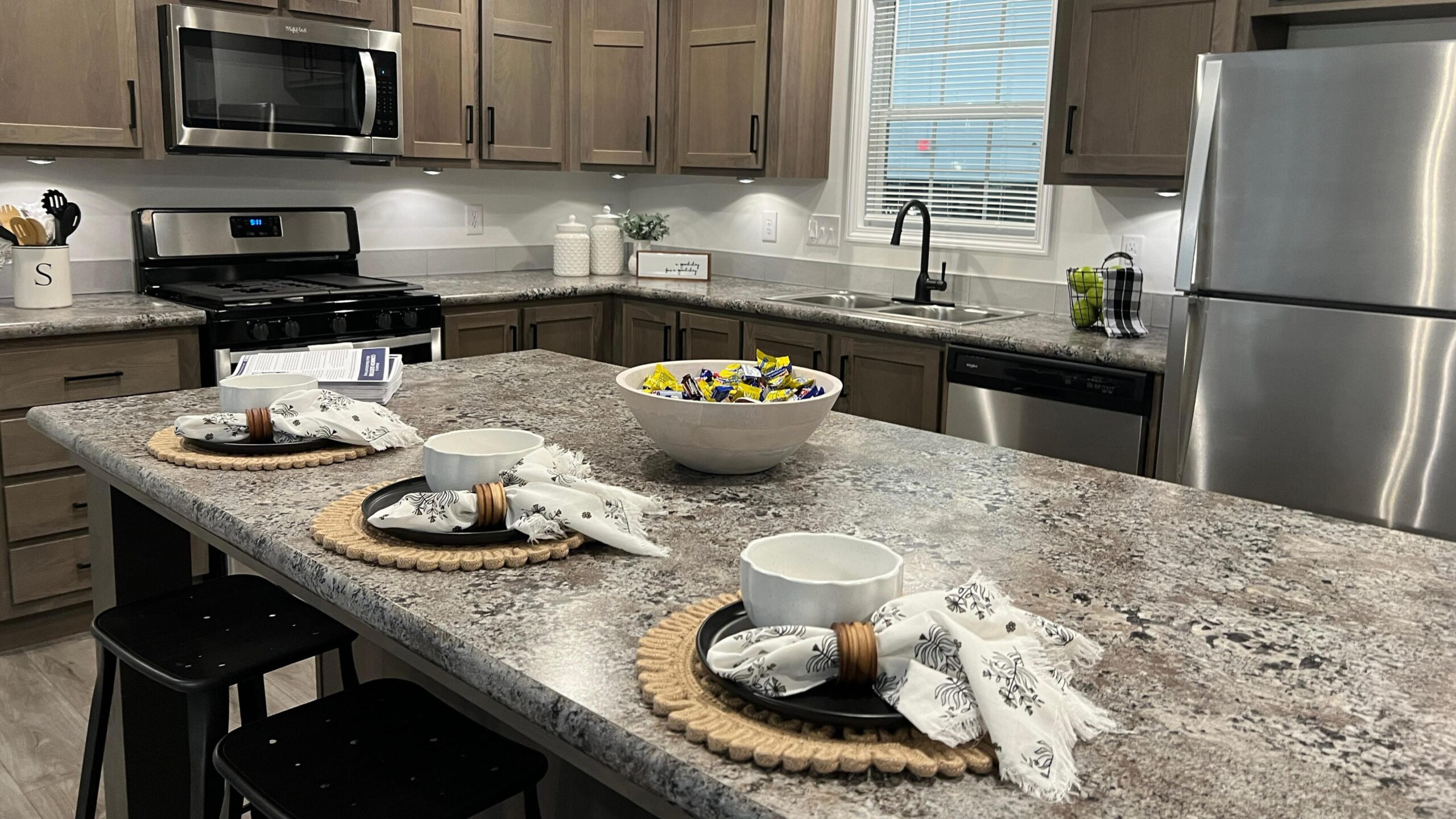A Definitive Guide to Buying a Manufactured Home That You Will Love
Manufactured and mobile homes offer a great way to acquire your very own home at an affordable price. Throughout your journey to buy a mobile home, in order to find the right fit, there are many important decisions to be made on what you should get, where, and how.
One of the benefits of the factory-built process is that you can buy a new home, one that no one has ever lived in. The mobile home buyer can have it made to their specifications right from the factory floor, and it can take only a few weeks to move in, unlike new site-built homes that are guaranteed to take a year or two to move in.
Or, perhaps you want an existing home. Do you want to reside where the home is today, or would you want it moved? Do you prefer to purchase a home in a mobile home park, or would you like the home on your own land?
There is plenty to consider when going about this process, so let’s get started.

Tip #1: Start With Your List of Wants & Needs
Do you want to buy new or used?

If you are less concerned about a customized home, you can buy a used mobile home and still find the ideal fit. It will take a bit more time and research, but it also is likely to be much more affordable. You may not be able to physically change a floor plan, but you can search through all the home options to find the best existing floor plans. And, of course, any upgrades you want to make on appliances, materials or technology can be projects for after you buy a mobile.
Do you want to buy a single-section or multi-section mobile home?
Back in the day, mobile homes often were referred to as single wide or double wide. Many often still refer to home sizes and floor plans in this fashion. A single wide mobile home can be as minimal as 12-by-40 feet. For those who prefer slightly larger models, they also can be found in 16-by-80 feet. A multi-section home would expand by approximately the same floor width. So, a double wide home could be 36-by-90 feet and any larger multi-section home would expand in width accordingly.
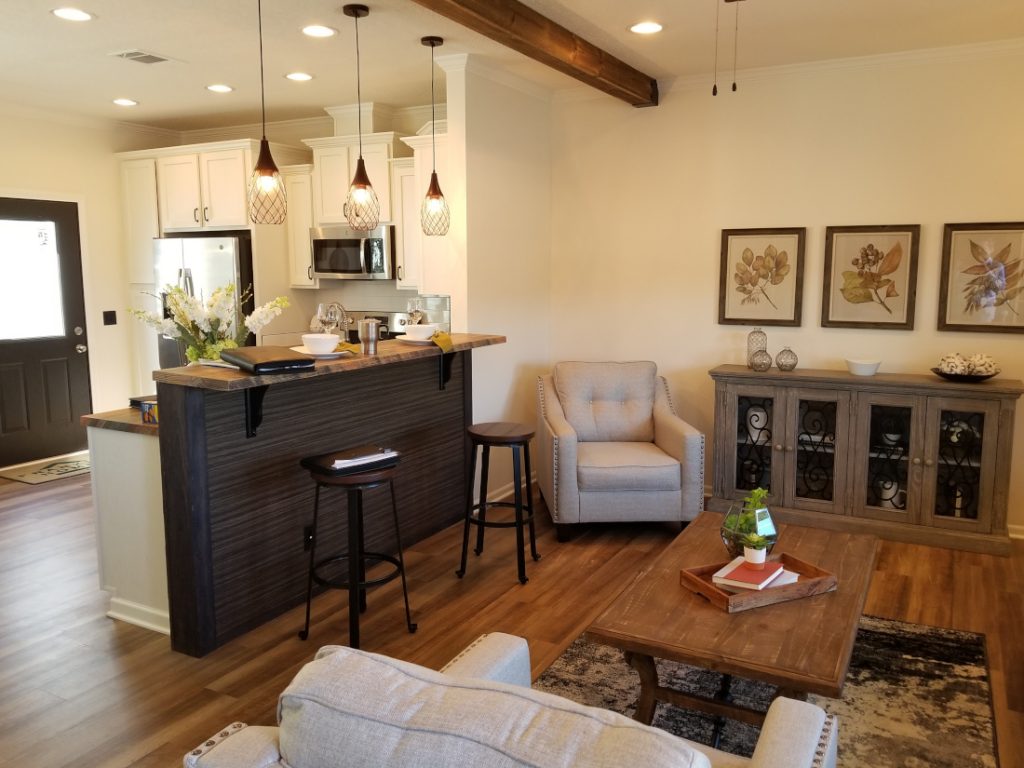
Are you going to live in a community, or on private land?
The community lifestyle is a huge draw for many people looking to buy a mobile home. They come for the golf, they come for the water, they come for the walking trails or the community activities. There is a long list of reasons why people may want to move into a mobile home park, and there are many different types of communities to consider. Perhaps you know some of the current residents and want that camaraderie? Or, you prefer to be near or in a city, where there’s easy access to the metro area benefits of shopping, arts and entertainment or health care.
This last part is very important for anyone looking to purchase a mobile home. If you’re a city lover, finding a great mobile home community is the way to go. While modular housing fits city infill plans in some communities, manufactured housing in metro areas remains primarily a community-based residential setting.
That said, options open up some if you’re outside the incorporated area. County land, townships, and some villages often allow mobile homes on open land. Essentially, the non-metro area often treats a factory-built home in much the same way as if you were building on site. The home site can be land you buy, land you already own, or even land that is owned by a friend or relative with space available to bring in a single- or multi-section residence.

Also for consideration if you’re looking to live in a mobile home community:
- Are you retiring, flying solo, or are you empty nesters? You may want to consider a 55 or senior mobile home park. Otherwise, if you have a family or want to live in a park with families, look for “all ages” communities. Again, each type of community comes with amenities worthy of consideration.
- Do you have pets? If so, you want to make sure you filter out properties with pet restrictions. But, don’t be alarmed. We’ve put together a couple of quick tips to help you find available pet-friendly mobile home parks.
- On those amenities, do you want a pool? A clubhouse? A dog run? Hiking trails? Consider the particulars and make a list as you go through potential mobile homes to buy.
The P.S. on this section is this: If you have a specific mobile home market in mind, your search on MHVillage can be an exact match to a city or area. Or you can expand your geographical parameters out to include any home that meets your qualifications within a 50-mile radius of your original search. This should help immensely in buying the mobile home that fits you best.

Tip #2: Understand your current credit situation
 When homebuyers start to dream up their perfect home purchase, one area that may be overlooked in the early stages is the potential buyers’ financial standing. Just like with any home or large-ticket purchase, you want to plan a strategy that will help with getting quality financing.
When homebuyers start to dream up their perfect home purchase, one area that may be overlooked in the early stages is the potential buyers’ financial standing. Just like with any home or large-ticket purchase, you want to plan a strategy that will help with getting quality financing.Those credit-building accounts that help you buy a mobile home:
- Credit cards
- Auto loans
- A school loan
- Home improvement loan
- A personal line of credit
- Loans for large tickets items, such as home appliances
How to Buy a Mobile Home with Bad Credit
 Let’s face it, nearly everyone has some financial challenges. If your credit has suffered, and you’re worried about your ability to buy a mobile home with bad credit (300 – 499 score), there are still ways to find the mobile home you want. You may need to take a higher interest loan, you you may be able to benefit from getting a government-backed loan. Perhaps you’ll need to save more for your down payment. You can pursue alternate financing, such as seller/owner financing. Or, it could be as simple as getting a loan from a friend or relative.
Let’s face it, nearly everyone has some financial challenges. If your credit has suffered, and you’re worried about your ability to buy a mobile home with bad credit (300 – 499 score), there are still ways to find the mobile home you want. You may need to take a higher interest loan, you you may be able to benefit from getting a government-backed loan. Perhaps you’ll need to save more for your down payment. You can pursue alternate financing, such as seller/owner financing. Or, it could be as simple as getting a loan from a friend or relative.If you don’t know what your credit score is, now is the time to find out. After years of confusion regarding how to safely check your score, the Federal Trade Commission has provided a safe way to get your credit report from three reporting agencies once in any 12-month cycle. The report will come to you without showing up as a “hard credit inquiry”, which is something that actually can impair your credit rating. The site the FTC set up to safely field credit inquiries is at Annual Credit Report.com.

Tip #3: Do Your Research – See What’s Out There
But what about the things you don’t know?
One thing we hear ALL THE TIME is “Wow, I had no idea how great manufactured homes are!” It’s true. Even in the last three years, manufactured homes have come a long way — inside and out.

For instance, there are developing programs from Freddie Mac and Fannie Mae that provide homebuyers with traditional mortgages for manufactured homes on private land that have features commonly associated with residential site-built homes.
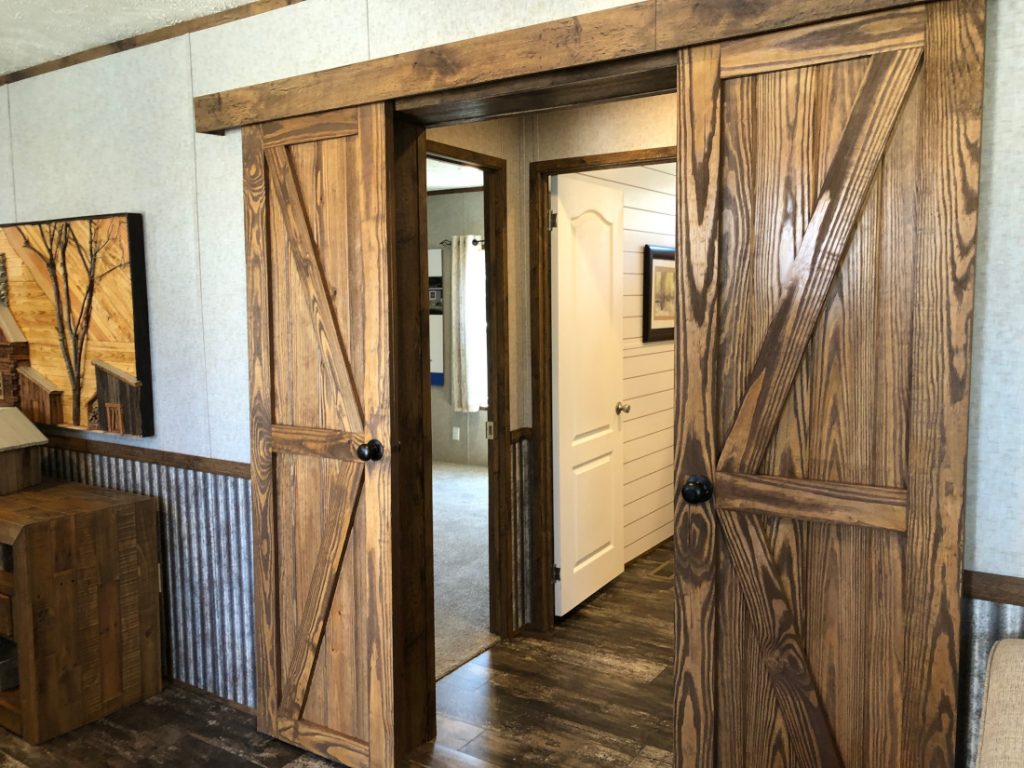
Where Will You Live When You Find the Right Mobile Home?
When you’re buying a new manufactured home, you want to buy from a plant that is close to your destination — typically within 100 miles. This will keep transportation costs down. Additionally, a shorter haul with your new home also will take less time for you to relax and enjoy your new digs!
On the other hand, if your interest lies in buying a used mobile home, consider where the home sits today and if you want to live where the home already resides. If you want to move an existing home, hire consultants to ensure the mobile home is safe to move. Additionally, transporting an existing home to a new location, if possible at all, likely will cost $5,000 or more. So, know where you want to be, and buy a home that’s close if not already in place.

Tip #4: Give Consideration to Site Preparation
Are You Moving To a Mobile Home Park?
Here are some good starter questions regarding site prep and set up:
- Is there enough room for the home?
- Will I be able to position it the way I imagine?
- Is the existing pad for the home going to hold up under the weight of the new home?
- Can I add a carport or other attachments?
- Can I use lap siding, or is there a need for mobile home skirting?
- What grounds maintenance can I depend on?
- And the big one… How much is lot rent?
That last one is key. Any place you buy a mobile home in a community, or pay to have one moved in, you will be responsible for monthly lot rent on the space for your home. Yes, you will own the home, but you will lease the community land it goes on. So consider your home payment AND your lot lease agreement into your monthly expenses.




